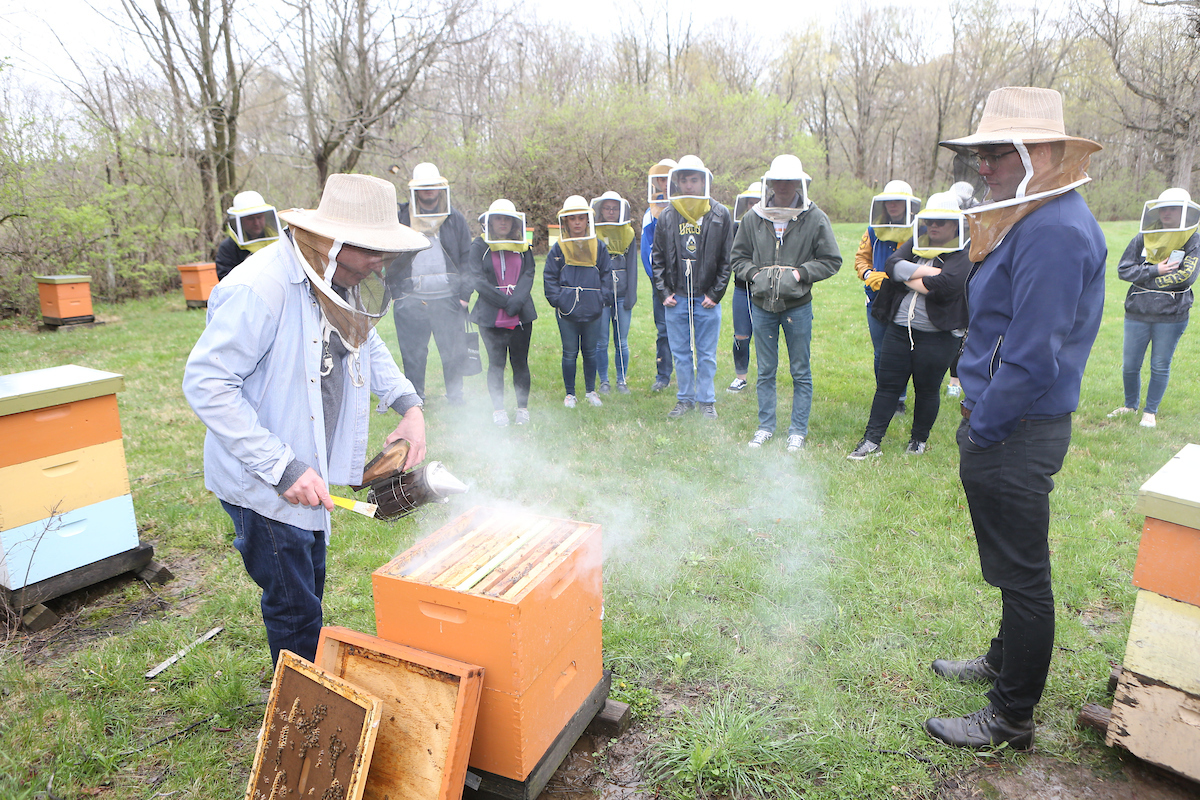Honey bees and mites may be small, but they leave a large footprint.
“Between five and eight percent of global crops by weight are pollinated by honeybees,” explained assistant professor of entomology Brock Harpur. “In the United States, Honey bees contribute around 18 billion dollars a year to the economy through pollination and honey production.”
While beekeeping can be economically and agriculturally rewarding, beekeepers must work hard to maintain their bees’ population.
“U.S. beekeepers lose about 30 percent of their colonies annually. And that can shoot up to 60 percent in a given year,” noted Harpur. “Most of the losses are a result of pests, the most common being the Varroa mite.”
Bee breeders have incorporated resistances to parasites and pathogens using largely unchanged methods for over a century, but Harpur thinks the time is right for innovation.
“In 2012, a single honeybee genome sequence cost around $10,000,” he recalled. “Today we can do it for about $50.”
With these cost-prohibitive tools now more accessible, Harpur hopes to capitalize on his recently earned award to work with his stakeholders to incorporate genomics into their practice.
Last week, Harpur was named one of 10 recipients of the 2022 New Innovator in Food & Agriculture Research Award. The Foundation for Food & Agriculture Research (FFAR) annually selects early-career scientists to receive the investment.
To qualify for the award, faculty members must be in the first three years of their scientific career and conduct research that aligns with FFAR’s food and agricultural challenge areas.
 Brock Harpur, assistant professor of entomology, works with high school students on teaching them how to care for bee hives.
Brock Harpur, assistant professor of entomology, works with high school students on teaching them how to care for bee hives.
“Bees and other pollinators are critical to the productivity of agricultural systems,” explained Bernie Engel, senior associate dean of research and graduate education. “Dr. Harpur’s research using cutting-edge science to help ensure healthy and productive bee populations is an important contribution to the sustainability of agricultural systems.”
“This will be among the first times genomics has been used for bee breeding efforts in the United States,” noted Harpur. “We pitched this for Varroa mite and disease resistance but the principles and practices we are developing can be used anywhere.
“I would not have received this award if I did not have our large stakeholder group behind me,” said Harpur, who noted stakeholders would also be important to the success of the database. “We need to form partnerships to help them take up the technology. Purdue, being a land-grant university, has that ability.”
"We are very excited by the work that Brock is leading at Purdue,” added Catherine Hill, professor of entomology and department head. “The FFAR award will help him to deliver leading-edge solutions to strengthen and better protect U.S. pollinator services and agricultural production."





